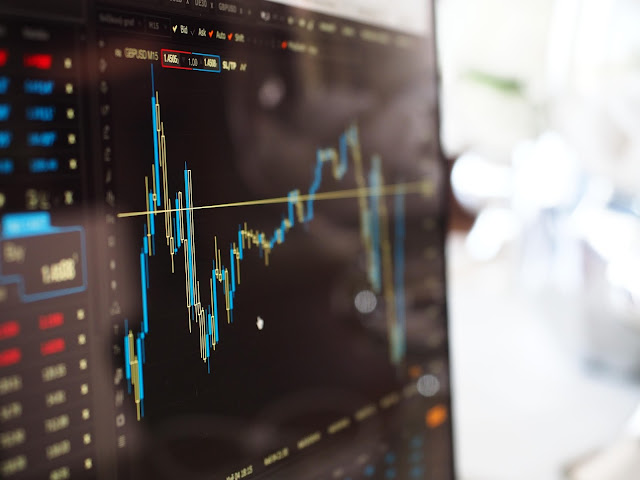What jumps out on a Monday morning ?
ref :- "Five Things to Start Your Day" , Bloomberg
Markets
Briefly, we'll just point you to two of Bloomberg's five .....
With stock markets regularly posting new record highs against a
global backdrop that is not without some pretty threatening clouds, it would be
easy for any newcomers to the markets to form the view that investors are only
too ready to celebrate the good stuff and ignore the bad. Actually, even if
you've been knocking around for while it's often difficult to avoid reaching
the same conclusion.
Casting an eye across the screens this morning the first thing
that hits you is a rise in global bond yields. And the reason ? A rise in
China's Caixin Manufacturing Index to 51.8 . This is an improvement of just 0.1
from last month but was better than expected and chimed with the release of a
number of manufacturing indices across Asia that beat expectations (if only
marginally in cases). The release of similarly decent readings in Europe only
improved the mood further, and the chatter (and the market moves) revolves
around these hints that a corner might ..... just might ..... have been turned
for the Chinese economy , and therefore by extension for the global economy
too.
We were only thinking last week how many horror stories were
appearing on the subject of zombie companies and bad loans / defaults in China,
so this morning's optimism seems a little premature to say the least. It also
conveniently assumes an agreement on phase one of the US - China trade talks
being concluded , something that is not a totally foregone conclusion
-- especially after Washington has adopted a position on Hong Kong that
will not have pleased Beijing. We should remember that theoretically the US is
due to slap a load more tariffs on Chinese goods on Dec 15th should agreement
not be reached, though of course President Trump is (in)famously unpredictable
in these matters.
Nevertheless, inescapably there is a feeling amongst some that we
may have seen the worst and fears of a global recession should be eased. Mmm
..... maybe, maybe not, but that more "risk on"scenario would
certainly play into the prognosis for markets that some have been supporting
for a while : stocks higher, and bond prices lower / bond yields higher. Of
course, any significant and sustained rise in bond yields would bring its own
problems in this debt-laden world of ours, but that's a story for another day.
In the meantime, look out for US manufacturing data this afternoon
to support or rebut this morning's sentiment. November PMI (Purchasing Managers
Index) is due unchanged at 52.2 ..... and crucially, remember the monthly
employment data due on Friday. The consensus is for non-farm payrolls showing
that 180,000 new jobs have been created. Right now, it seems that only a
noticeably lower figure would puncture the upbeat mood .... assuming it's still
in place at the end of the week.
And also, one of those political developments that might have a
big impact on markets ..... but not necessarily immediately.
Over the weekend the SPD, the left-of-centre junior partner in
Germany's ruling coalition, elected Norbert Walter-Borjans and Saskia Esken as
the new joint leaders. These two are decisively further to the left than we are
used to seeing in positions of influence in Germany and have been vocal critics
of the government that their party "supports". They have
immediately called for a renogotiation of the terms of their alliance with
Angela Merkel's -- or more accurately, Annegret
Kramp-Karrenbauer's -- conservative CDU/CSU. That idea was
immediately rejected by AKK (can we call her that to save time?), who suggested
that if they can't stick to the current terms of the coalition then they should
leave -- something that would open up the possibility of a whole
range new coalition partners for the CDU, each with their own demands.
Mr Walter-Borjans has denied having any intention to pull the SPD
out of the ruling alliance (at this stage), but will be making demands of his
own . These will probably revolve around things like climate-change packages
and minimum wages ..... we'll know more on Friday. But most importantly (for
markets), it's almost certain that the new team at the top of the SPD will ask
for changes to fiscal rules. By that, they mean dropping what they would call
the obsession with balanced budgets and instead embracing the idea of fiscal
spending even if it's financed by higher levels of borrowing.
The coalition was expected to hold until the next elections in
Sept 2021, but it's very possible that rather than meet their fiscal demands
the CDU/CSU will tell the SPD where to go .... or of course the SPD will
withdraw of their own accord. If then snap elections were called, the CDU/CSU
would have to cobble together a deal with other partners. All of them would
likely be equally averse to following the obsession with balanced budgets which
were, they believe, only sensible after Germany nearly bankrupted itself with
the costs of reunification. Or perhaps other parties would get together to oust
the CDU/CSU from power.
Either way, a German administration prepared to countenance a
deficit -- i.e. to borrow more and spend more -- has
pretty considerable implications for bond markets, both European and global.



No comments